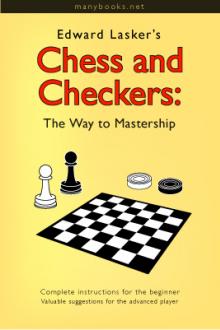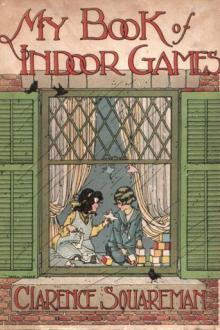The Plastic Age - Percy Marks (classic literature books txt) 📗

- Author: Percy Marks
Book online «The Plastic Age - Percy Marks (classic literature books txt) 📗». Author Percy Marks
Slow "Good Night" Over His Shoulder.
Hugh Went To His Room And Thought Over The Talk. He Was Miserably
Confused. Like Ferguson He Had Believed Everything That His Father And
Mother--And The Minister--Had Told Him, And He Found Himself Beginning
To Discard Their Ideas. There Didn'T Seem To Be Any Ideas To Put In The
Place Of Those He Discarded. Until Carl'S Recent Confidence He Had
Believed Firmly In chastity, But He Discovered, Once The First Shock Had
Worn Off, That He Liked Carl The Unchaste Just As Much As He Had Carl
The Chaste. Carl Seemed Neither Better Nor Worse For His Experience.
He Was Lashed By Desire; He Was Burning With Curiosity--And Yet, And Yet
Something Held Him Back. Something--He Hardly Knew What It Was--Made Him
Avoid Any Woman Who Had A Reputation For Moral Laxity. He Shrank From
Such A Woman--And Desired Her So Intensely That He Was Ashamed.
Life Was Suddenly Becoming Very Complicated, More Complicated, It
Seemed, Every Day. With Other Undergraduates He Discussed Women And
Religion Endlessly, But He Never Reached Any Satisfactory Conclusions.
He Wished That He Knew Some Professor That He Could Talk To. Surely Some
Of Them Must Know The Answers To His Riddles....
Chapter 12 Pg 85
Hugh Wasn'T Troubled Only By Religion And Sex; The Whole College Was
Disturbing His Peace Of Mind: All Of His Illusions Were Being Ruthlessly
Shattered. He Had Supposed That All Professors Were Wise Men, That Their
Knowledge Was Almost Limitless, And He Was Finding That Many Of The
Undergraduates Were Frankly Contemptuous Of The Majority Of Their
Teachers And That He Himself Was Finding Inspiration From Only A Few Of
Them. He Went To His Classes Because He Felt That He Had To, But In Most
Of Them He Was Confused Or Bored. He Learned More In The Bull Sessions
Than He Did In The Class-Room, And Men Like Ross And Burbank Were
Teaching Him More Than His Instructors.
Further, Nu Delta Was Proving A Keen Disappointment. More And More He
Found Himself Thinking Of Malcolm Graham'S Talk To Him During The
Rushing Season Of His Freshman Year. He Often Wished That Graham Were
Still In college So That He Could Go To Him For Advice. The Fraternity
Was Not The Brotherhood That He Had Dreamed About; It Was Composed Of
Several Cliques Warring With Each Other, Never Coalescing Into A Single
Group Except To Contest The Control Of A Student Activity With Some
Other Fraternity. There Were A Few "Brothers" That Hugh Liked, But Most
Of Them Were Not His Kind At All. Many Of Them Were Athletes Taken Into
The Fraternity Because They Were Athletes And For No Other Reason, And
Although Hugh Liked Two Of The Athletes--They Were Really Splendid
Fellows--He Was Forced To Admit That Three Of Them Were Hardly Better
Than Thugs, Cheap Muckers With Fine Bodies. Then There Were The Snobs,
Usually Prep School Men With More Money Than They Could Handle Wisely,
Utterly Contemptuous Of Any Man Not Belonging To A Fraternity Or Of One
Belonging To Any Of The Lesser Fraternities. These Were The "Smooth
Boys," Interested Primarily In clothes And "Parties," Passing Their
Courses By The Aid Of Tutors Or Fraternity Brothers Who Happened To
Study.
Hugh Felt That He Ought To Like All Of His Fraternity Brothers, But, Try
As He Would, He Disliked The Majority Of Them. Early In His Sophomore
Year He Knew That He Ought To Have "Gone" Delta Sigma Delta, That That
Fraternity Contained A Group Of Men Whom He Liked And Respected, Most Of
Them, At Least. They Weren'T Prominent In Student Activities, But They
Were Earnest Lads As A Whole, Trying Hard To Get Something Out Of
College.
The Nu Delta Meetings Every Monday Night Were A Revelation To Him. The
Brothers Were Openly Bored; They Paid Little Or No Attention To The
Business Before Them. The President Was Constantly Calling For Order
And Not Getting It. During The Rushing Season In The Second Term,
Interest Picked Up. Freshmen Were Being Discussed. Four Questions Were
Inevitably Asked. Did The Freshman Have Money? learly Realise Them As Types Which Can Never Recur.
The Secret Of Selwyn'S Charm Lies In The Contrasts Of His Character;
His Versatility And Cosmopolitan Sympathies Attract Us Now As They
Chapter 12 Pg 86Attracted In His Lifetime Men Very Different In Habits, Pursuits,
And Mind.
The First Lord Holland, Horace Walpole, The Duke Of Queensberry,
Each A Type Of The Society Of The Eighteenth Century; The
Unscrupulous Politician, The Cultivated Amateur And Man Of Letters,
The Sportsman With Half The Opera Dancers In London In His Pay--Of
All He Was The Closest Friend. The Most Intimate Of Them, The Duke
Of Queensberry, Led An Extravagant And A Dissipated Life, In
Contrast With Which Selwyn'S Was Homely And Simple. He Could Leave
The Gambling Table Of The Club To Play With Mie Mie Or A Schoolboy
From Eton; While His Friends Were Crippled By Dice And Cards And
Became Seekers After Political Places By Which They Might Live, He
Was Prudent In His Play And Neither Ruined Himself Nor Others. He
Had A Self-Control And A Sound Sense, Which Were Not Common In His
Generation; We See Them In The Tranquil, Contemplative Eyes Of
Reynolds'S Portraits, Ready In a Moment To Gleam With Humour. By
Reason Of His Unfailing Good-Nature, He Was Always At The Service Of
A Friend. Himself Without Ambition, He Watched Men, Not Possessed Of
His Tact And Ability, Rise To Positions Which He Had Never The Least
Desire To Fill. In an Age Of Great Political Bitterness And The
Strongest Personal Antagonism He Continued The Tranquil Tenor Of His
Way, Amused And Amusing, Hardly Ever Put Out Except By The Illness
Or The Misfortune Of A Friend. "George Selwyn Died This Day
Se'Night," Wrote His Friend Storer To Lord Auckland; "A More
Good-Natured Man Or A More Pleasant One Never, I Believe, Existed.
The Loss Is Not Only A Private One To His Friends, But Really A
Public One To Society In General."* Gaiety Of Temperament And Sound
Sense, A Quick Wit And A Kind Heart, Sincerity And Love Of Society,
Culture Without Pedantry, A Capacity To Enjoy The World In each
Stage Of Life: These Are Seldom Found United In One Individual As
They Were In George Selwyn, And He Is Thus For Us Perhaps The
Pleasantest Personality Of English Society In The Eighteenth
Century.
* "Journal And Correspondence Of Lord Auckland," Vol. Ii. P. 383.
Chapter 2. 1767-1769 The Correspondence Commences.
Frederick, Fifth Earl Of Carlisle--Lady Sarah Bunbury--The Duke Of
Grafton--Carlisle, Charles Fox, And The Hollands Abroad--Current
Events--Card-Playing--A Dinner At Crawford'S--Lady Bolingbroke
--Almack'S--The Duke Of Bedford--Lord Clive--The Nabobs--Corporation
Of Oxford Sell The Representation Of The Borough--Madame Du Deffand
--Publication Of Horace Walpole'S "Historic Doubts On Richard The
Third"--Newmarket--London Society--Gambling At The Clubs--A Post
Promised To Selwyn--Elections--A Purchase Of Wine--Vauxhall.
In The Chapter Which Contains The Earliest Of Selwyn'S Letters To
Frederick, Earl Of Carlisle,* Something Must Be Said Of The
Correspondence Itself. It Was Begun In 1767, And Most Of The Letters
Which Selwyn Wrote To Lord And Lady Carlisle From That Date To His
Death Have Been Preserved At Castle Howard. The Collection Is In
Chapter 12 Pg 87Many Respects Unique. It Records A Great Number Of Facts, Many No
Doubt Small And In Themselves Unimportant, Which, However, In The
Aggregate Form A Lifelike Picture Of English Society In The
Eighteenth Century. The Letters Are Written In The Bright And
Unaffected Manner Which Madame De Sevigne, Whose Style Selwyn So
Much Admired, Had Introduced In France. Filled With Human Interest
And Easily Expressed, They Differ Materially From Walpole'S Letters
In That They Are Characterised By A Greater Simplicity, And A Less
Egotistical Tone. They Show A Keener Interest In His Correspondent.
There Is In Them A Delightful Frankness, An Unconventional
Freshness. Walpole'S Correspondence, Invaluable As It Is, Always
Bears Traces Of The Preparation Which We Know That It Received. But
Selwyn, With A Light Touch, Wre The Thoughts And Impassions Of The
Moment, Never For Effect. Walpole Was Often Thinking Of Posterity,
Selwyn Always Of His Friends, Who Were Numberless And Who Were In
Their Time Frequently His Correspondents. How Numerous Selwyn'S
Letters Must Have Been We Know From The Number To Him Which Have
Been Published; But With The Exception Of Those Which Have
Fortunately Been Preserved At Castle Howard, His Appear To Have
Perished.
* Frederick, Fifth Earl Of Carlisle.
1748. Born.
1769. Married Lady Caroline, Daughter Of Lord Gower.
1777. Treasurer Of Household.
1778. Commissioner To America.
1779. Lord Of Trade And Plantations.
1780. Lord Lieutenant Of Ireland.
1782. Lord Steward.
1783. Lord Privy Seal.
1825. Died.
The Frequent French Interpolations With Which His Letters Are
Interspersed Now Strike Us As Affectations. They Were, However, A
Fashion Of The Day; Nor Should We Forget That Selwyn Spent So Much
Of His Life In Paris That The Language Came To Him As Easily As His
Own.
In 1767 Selwyn And Carlisle Had Not Long Been Friends. "Don'T Lead
Your New Favourite Carlisle Into A Scrape," Wrote Gilly Williams To
Selwyn In The Previous Year. The Words Were Written Without Serious
Intent, But They Are Noticeable Because They Are So Opposite To The
Whole Course Of The Rising Friendship. The Relations Of The Two Men
Were Remarkable.
It Has Been Well Said Of Selwyn By A Statesman Of To-Day That He Was
A Good Friend, A Fact Never Better Exemplified Than In His
Friendship With Carlisle. In His Affairs He Took A Greater Interest
Than Would Be Expected Of The Nearest Of Relatives, And With This He
United A Singularly Warm And Open-Hearted Affection Not Only For
Carlisle But For His Family. It Lasted To The Day Of His Death.
There Was Between Them, As Pitt Said Of His Relations With
Wilberforce, A Tie Of Affection And Friendship--Simple And Ingenuous
And Unbreakable.
The Nobleman Who Has Been Referred To Simply As Lord Carlisle Had
Many Of The Qualities That Mark A Leader Of Men. He Did Not Attain,
However, To The Eminence As A Statesman, Man Of Letters, Or In





Comments (0)